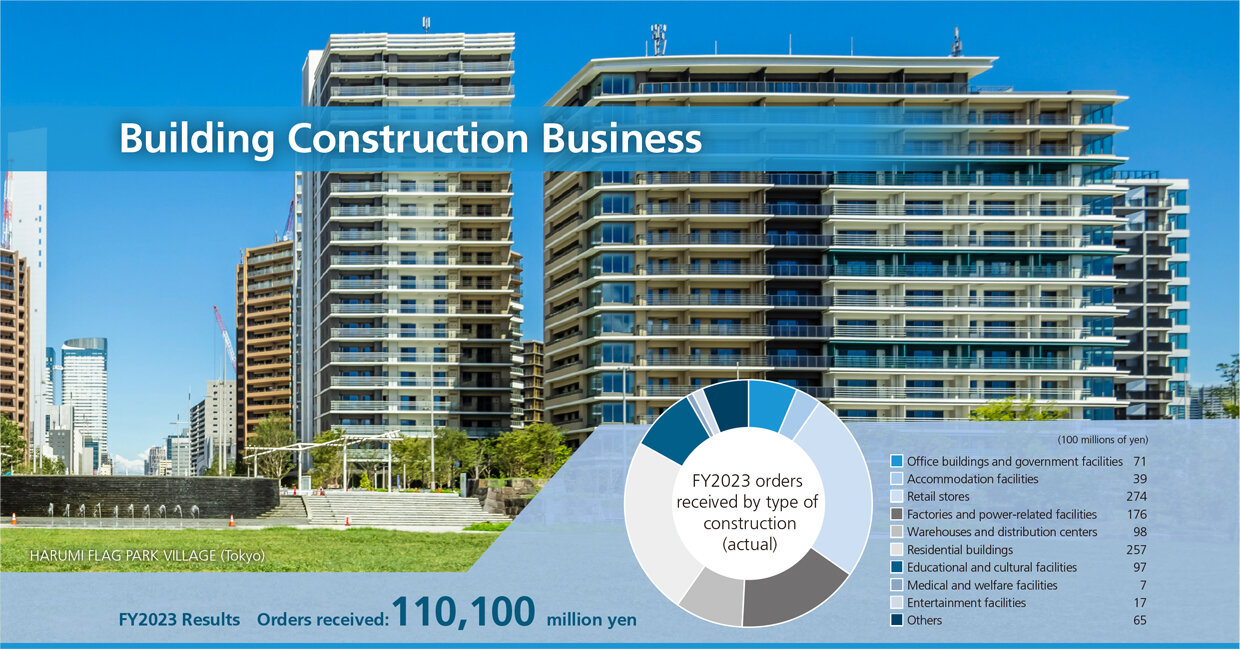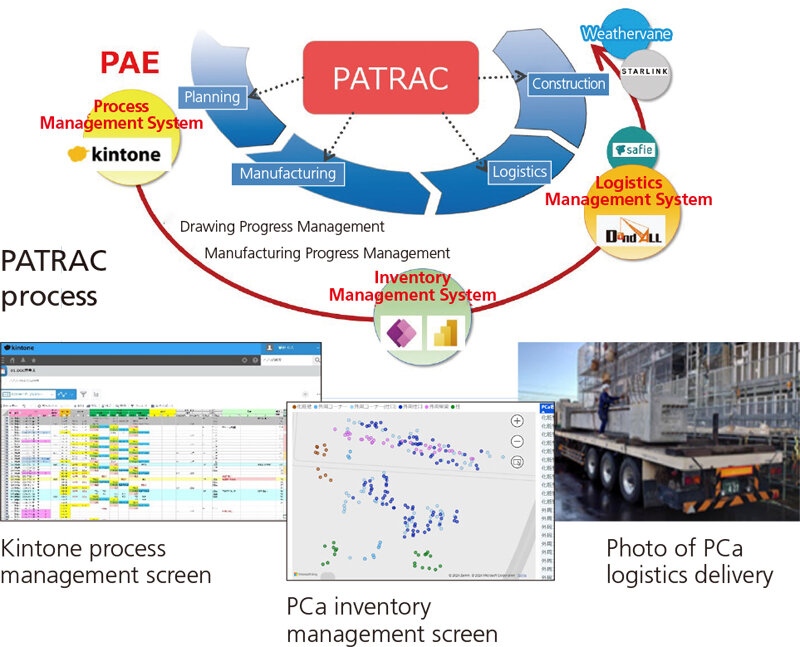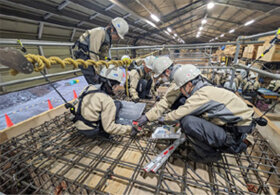
Business Overview
FY2023 Results and Mid- to Long-term Policy
With regard to construction investment, capital investment in the manufacturing sector has been strong and is expected to continue. In the housing sector, redevelopment projects are spreading across the country, particularly in the Tokyo metropolitan area, and solid investment continues. On the other hand, the construction industry is facing increasing supply constraints due to the implementation of overtime limits from this fiscal year.
In the domestic building construction business, we have restricted new orders in order to prioritize the completion of the order backlog. At the same time, we have thoroughly implemented measures to emphasize profitability, and as a result, profitability at the time of order receipt in fiscal 2023 has improved significantly. Going forward, we will continue to adhere to this policy, restructure our project execution system, and develop marketing activities to win construction projects in line with progress in completing the order backlog in order to improve the level of profit. In addition, to ensure compliance with the overtime limit, we will promote efforts to provide centralized support for in-house sections of on-site management operations.
Characteristics and Strengths of the Business
In the housing business, we have an extensive track record in super high-rise residential building using our proprietary SQRIM construction method, which achieves high quality and short construction time. In the super high-rise under construction, we have established and applied precast concrete (PCa) technology, which centrally manages the entire process of component manufacturing, storage, transportation to the site and installation at our Group plants, thereby reducing the amount of manpower required for on-site work.
For warehouses, data centers, and large factories, we use MIC (Mitsui Sumitomo Integrated Composite System), a hybrid steel-frame-reinforced concrete construction method, to provide buildings that are resistant to vibration while providing large spaces.
In addition, we are focusing on ZEB/ZEH construction to achieve carbon neutrality, and have obtained ZEH-M certification for our company's single-employee dormitories, which operate with a zero energy balance.

Promoting Digitalization of Key Technical Areas

For the purpose of efficient centralized management of on-site construction using PCa, an integrated progress management system combining general-purpose ICT cloud services and self-developed functions was introduced to actual projects to manage about 20,000 pieces of PCa products.
The system enables integrated management of tasks that were previously performed individually for PCa works, such as scheduling of structural works, product drawing approval status, manufacturing status, product location coordinates, and transportation reservations, by linking management information for drafting, manufacturing, and construction of PCa works on the cloud. The "system connecting people" using ICT has realized efficient construction management. (Construction production system PAE)
Improving Profitability and Strengthening Risk Management
In order to improve the performance of the building construction business, we are thoroughly implementing initiatives to emphasize profitability in new construction orders. We have been working to win orders based on the premise of securing a project execution system that includes subcontractors, and strictly implementing initiative screening and risk management in the initial stages of initiatives, resulting in a significant improvement in profitability at the time of order receipt in fiscal 2023.
Currently, there is a certain percentage of low-profit projects affected by rising prices and other factors, but we will continue to replace these with high-quality projects by focusing on profitability in accordance with our ability to complete construction.
Efforts for Appropriate Staffing and Training of Young Employees

In order to enable systematic staffing after the construction system shortage is resolved, we have put into operation a "construction engineer staffing system" that systematizes the staffing status of project execution engineers, and we are implementing the appropriate staffing of engineers in all branches. In addition, in order to quickly develop young engineers who can fill the shortage of middlelevel employees, we will systematically train young engineers in conjunction with annual training. For design engineers, we have shifted from traditional on-the-job training to intensive training from the first year to promote early development and rotational training to develop independent project supervisors.
Initiatives toward Vision 2030
We will improve the efficiency of construction through the integrated progress management system for PCa materials developed and implemented in fiscal 2023. In addition, we will focus on research and development aimed at the future automation of PCa materials production in order to enhance our competitiveness through further efficiency and labor savings, and to promote multi-use and overseas development.
In addition, we will promote the strengthening of cooperation such as supporting the training of engineers from the companies of our partner company organization, the Shineikai. In addition to decarbonization during construction through the use of green power and other measures, we will also promote decarbonization initiatives such as the conversion of our own SuKKiT series of housing products to ZEH to reduce CO2 emissions during the operation of the buildings designed and built.
